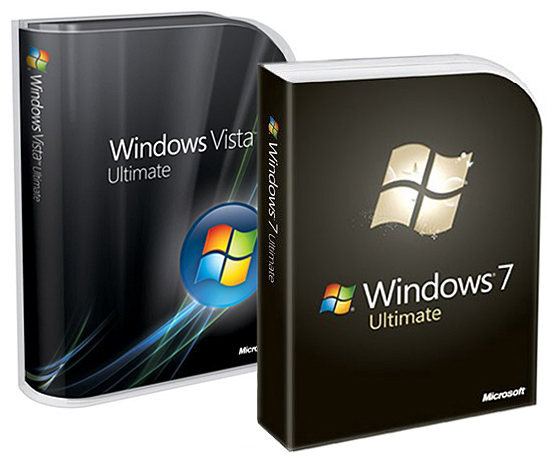Benchmarking Windows 7: Harder, Better, Faster, Stronger?
New Means Better, Right?
While most Tom’s Hardware readers initially resisted the switch from Windows XP, responses to our own articles since last year suggested that many have given up the fight and moved to Vista.
Perhaps Microsoft’s end-of-life announcement for that venerable operating system had something to do with the rise in popularity of Windows Vista. Or maybe high-end users simply wanted to enjoy the newer features, such as its Aero visual enhancement, as well as Media Center, available to Home Premium and Ultimate buyers. However, a few of Vista’s nagging problems have persisted, including slow loading times, a ravenous appetite for RAM, and the need for even more RAM to minimize those slow loading times via SuperFetch.
Meanwhile, radically reduced prices for high-speed, high-capacity memory is most likely the reason behind the increased popularity of Vista among enthusiasts. New applications and games that required additional RAM arrived just in time to match the increase in mid-priced DRAM density, but a 64-bit operating system would be required to properly support capacities of 4GB or more. Vista was the first Windows OS to mainstream its 64-bit versions, and spotty driver support under 64-bit Windows XP has made Vista x64 the easier choice.
But for many of us, the compromise of using an OS that both supports and requires additional memory seems wasteful, especially when that added memory doesn’t give us back 100% of the responsiveness previously felt in the OS it replaced. Microsoft is finally ready to handle that concern with Windows 7, which is really an improved version of Vista.
Tom’s Hardware has already published articles explaining some of the more complex changes Microsoft incorporated into its latest operating system. However, hardware editors are more concerned with the simple matters of program performance and responsiveness. Thus, while we’ve heard a great many details of how Windows 7 improves such things as security, features, and “user experience,” we probably define “experience” differently than the software guys. When narrowing our focus to basic performance, how much better is Windows 7 than the OS it replaces? It's time to quantify the differences!
Get Tom's Hardware's best news and in-depth reviews, straight to your inbox.
-
SpadeM The article doesn't say much but I personaly would have preferred if you chose a 5850 or 5870 as the graphics card. Since you saidReplyModern hardware and software deserve each other, so we used some of our latest parts to gauge the performance difference of each operating system.
Who knows,maybe it would have made a difference in the numbers, in power consumption. -
themadmanazn Doesn't seem to be a huge difference from a performance point of view, but if it isn't as in your face as Vista, still a win =PReply -
jj463rd One of my local television news Komo had a forum and some discussions about Windows 7 over Windows Vista.There were quite a few people who complained about running Vista on their PC.However most of the complainers (and there were a lot of them) had PC's with specifications that just barely met Vista's requirements.Reply
These people had outdated and obsolete hardware (probably owned lame OEM name brand PC's)no wonder that they had problems.Anyway thanks for the benchmarking of 7 vs Vista.The conclusion is rather interesting especially about a game running SMOOTHER and the feel of 7 being 7% to 10% faster than Vista.I like smoother gameplay. -
Would have been nice to see Windows XP included as well. Just to know how much difference there really is in terms of performance between all 3 O/s's. From the above tests, there seems little reason to move to Win7 from Vista based on performance alone....Reply
-
Rock_n_Rolla What matters most is that Windows 7 gives way to what many are reallyReply
after, A reliable and efficient Operating System as a replacement to their
Windows XP, which millions and millions of people are still using.
From the DX11 and Shader 5 hype, To Win XP mode to Fast Bootup to
Increased FPS n gaming to strong security features... Well, Its up to
them which versions is which. :) -
razor512 waste of an article especially since they said "While most Tom’s Hardware readers initially resisted the switch from Windows XP"Reply
should have benchmarked it against windows xp (fresh install)
while windows 7 is faster in some areas compared to windows vista, but it has lag spikes which causes CPU intensive tasks which lowers CPU benchmark results. -
Crashman Razor512waste of an article especially since they said "While most Tom’s Hardware readers initially resisted the switch from Windows XP"should have benchmarked it against windows xp (fresh install)while windows 7 is faster in some areas compared to windows vista, but it has lag spikes which causes CPU intensive tasks which lowers CPU benchmark results.Reply
The article also explains that XP x64 or Windows 7 x86 weren't options. What, you wanted 32-bit XP compared to 64-bit Vista and 7? -
buwish I think that as more apps are written specifically for W7, we'll see a vast improvement over these benchmarks. Just have to give it a bit of time.Reply -
megabuster Why are we still testing W7 vs Vista SP1 when SP2 has been released for a while now?Reply

